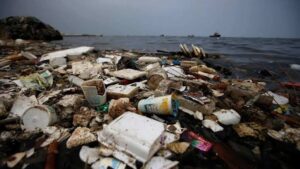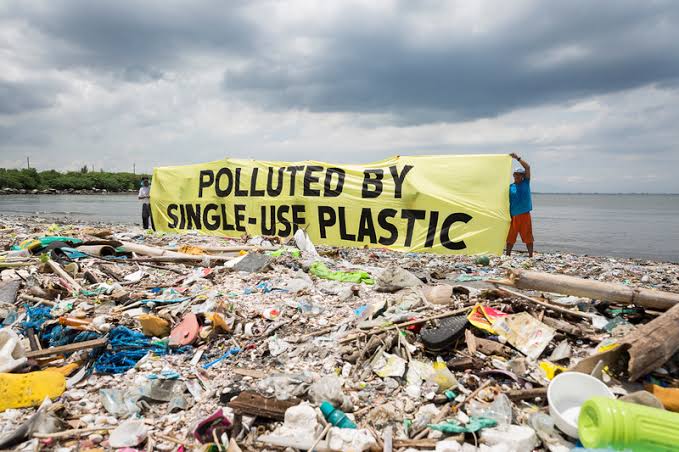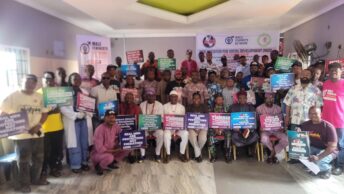The Nigerian Government has initiated concrete steps to eliminate single-use plastics across Nigeria, a bold move aimed at tackling the country’s escalating plastic pollution crisis and safeguarding the environment.

The Office of the Secretary to the Government of the Federation (SGF) on Tuesday inaugurated an Inter-Ministerial Committee on the Ban of Single-Use Plastics (SUPs), marking a decisive phase in enforcing the policy approved by the Federal Executive Council (FEC) on June 25, 2024.
The ban targets commonly used plastic materials such as polyethylene terephthalate (PET) bottles, styrofoam food packs, plastic shopping bags, sachet water packaging, and plastic straws—all of which have become major culprits in clogging drains, littering streets, and polluting waterways.
Speaking during the inauguration, SGF George Akume said the initiative underscores Nigeria’s renewed commitment to sustainable environmental management and aligns with its obligations under the Sustainable Development Goals (SDGs).
“The FEC decision reflects the government’s resolve to tackle the health and environmental hazards caused by indiscriminate use and disposal of single-use plastics,” Akume said. “Improper disposal of these materials leads to severe marine pollution, land degradation, and public health risks due to the toxic chemicals they release. Plastic waste takes decades to decompose, posing a long-term danger to wildlife and ecosystems.”
Represented by the Permanent Secretary, General Services Office, Mohammed Sanusi Danjuma, the SGF described the policy as a landmark step toward reversing environmental degradation and promoting sustainable production and consumption patterns.
He equally explained that the newly inaugurated committee would design a clear roadmap for implementing the ban, including timelines, enforcement mechanisms, and public sensitisation strategies.
The goal, he said, is to ensure a seamless transition to environmentally friendly alternatives and promote circular economy practices.
Government has been repeatedly told to take stronger action on plastic pollution, citing Nigeria’s position among the top plastic waste generators in Africa.












